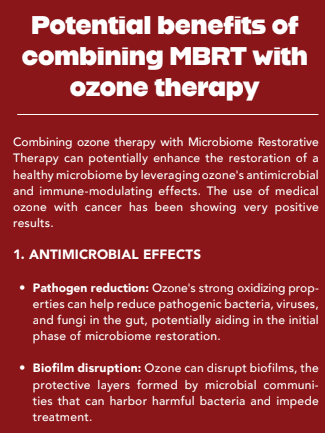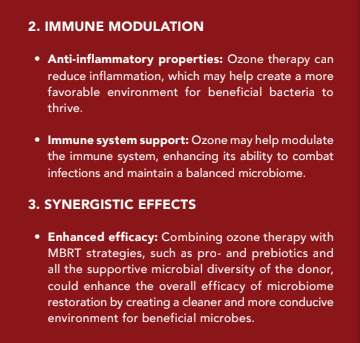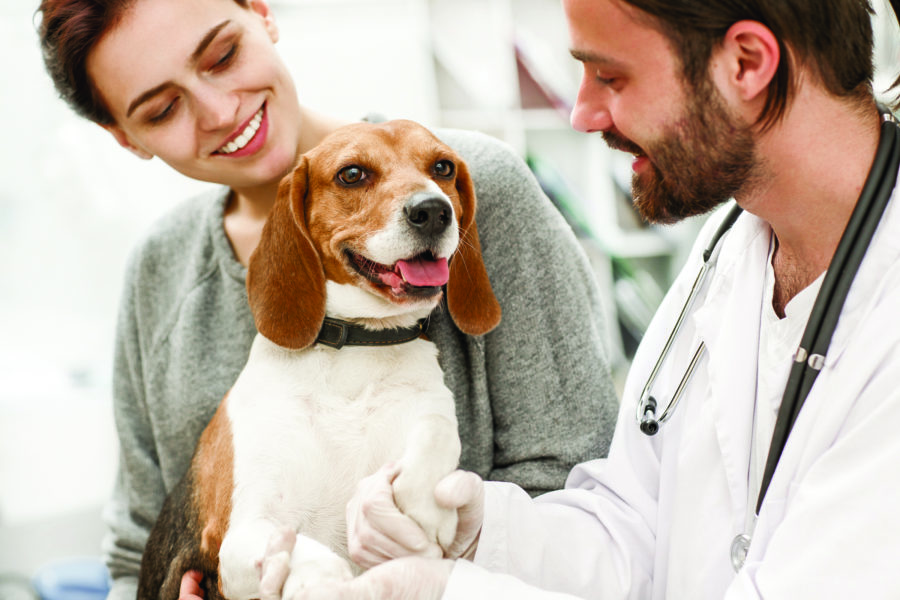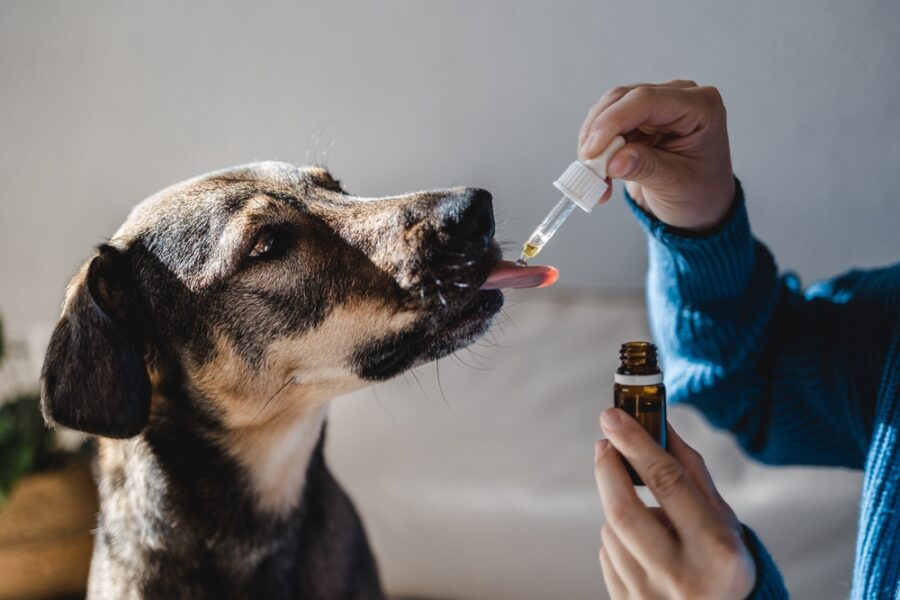Research shows probiotics may lower the risk of some canine cancers, help the immune system function better, and even produce anti-tumorigenic compounds.
Cancer is an autoimmune disease. When a dog’s body cannot identify something abnormal, such as cancer cells, and the problem starts multiplying, there’s an issue with his body’s innate protection. This article looks at probiotics and cancer prevention in dogs and how the gut microbiome, which is closely connected to the immune system, may influence cancer in the dog.
Canine cancers have increased exponentially
The incidence of canine cancer has increased so much that over 50% of dogs now get the disease in their lifetimes. This is very troubling and disturbing. In 1974, the literature showed that only Boxers got cancer, in the form of melanomas and mast cell tumors. In 1977, studies out of Angell Memorial Hospital in Boston were finding hemangiosarcoma in German Shepherds. I was an intern at Angell then, working on these cases, and at the time we thought we’d found a new issue. Now, hemangiosarcoma is found in many breeds.
Dogs age seven times faster than we do, and as such are portraying a picture of us in fast time. They get exposed to the same chemicals we do in our homes, and their food is tainted with glyphosate, preservatives, and other microbiome-demolishing compounds, very much as human foods are.
How the microbiome may influence cancer
Probiotics and cancer prevention in dogs is an area of considerable interest. The gut microbiome is a complex mix of microorganisms and their metabolites, and is closely linked to the immune system. Would knowing all the species of these microorganisms, and their interactions with each other and their host, be the knowledge we need to understand how cancer starts, and what makes it spread and dominate the host? Does a course of antibiotics reduce microbial diversity, and hence increase the chances of cancer?
The microbiome protects us and our canine patients against pathogens, fine-tunes our immune systems, shapes how we use nutrients, and produces a host of chemicals that impact cell function. We have come to realize that the microbiome can also hasten or slow cancer development as well as influence our response to anticancer therapies. For example, research is being done into how the microbiome influences the body’s reaction to particular immunotherapies for cancer, and is finding that an individual who was resistant to a particular immunotherapy responded better when they received a fecal transplant from an individual who responded well to the immunotherapy (more on fecal transplants below).
While it is not yet fully understood if microbiomes around a cancer lesion can cause or control the lesion, growing evidence suggests they may influence the tumor environment in several ways.
In cancer, cell types around the tumor are different from normal tissue. The question is, are these microbiome organisms helping to promote the cancer, or trying to stop it from killing the host? Allowing the body to be inflamed around the cancer could give it the microbes needed to attack the malignancy.
Recent evidence shows the state of the human microbiome is associated with various diseases, including cancer. The salivary microbiome, fecal microbiome, and circulating microbial DNA in blood plasma have all been used experimentally as diagnostic biomarkers for many types of cancer. The microbiomes present within local tissues, other regions, and the tumors themselves have been shown to promote or restrict the development and progression of cancer, most often by affecting cancer cells or the host’s immune system.
Perhaps the best evidence that microbiota are not just passengers or bystanders comes from Helicobacter pylori and several oncogenic viruses that drive cancer (see Table 1). H. pylori infections are strongly linked to gastric adenocarcinoma; this is mediated by inflammation with H. pylori–induced gastritis, considered a precursor of cancer
While the exact mechanisms by which microbiomes around cancer lesions influence the disease are still being researched, it is clear they can have a significant impact on cancer development, progression, and treatment. Further studies are needed to fully understand these interactions and to develop effective microbiome-based therapeutic strategies. Getting the best response from the microbes you use is also very important for success.
How probiotics may lower risk of some cancers
What gives an animal the ability to live with cancer? Can these qualities be shared? Are they due to specific probiotics in the animal? What microbe species may have protected our animals from cancer, but have since been lost over the generations?
An organic, plant-based, fresh raw diet seems to reduce cancer. Is this because it gives microbes to the gut from the plants? Fewer toxins build up in plants than in animal proteins, so a plant-based diet reduces insults to the body.
Probiotics are being studied as a way to possibly help lower the risk of some cancers, and modulate the gut microbiome during cancer treatment. They may help the immune system function better, allowing it to detect and kill cells that could become cancerous. They may have further anticancer effects by eliminating carcinogens, altering colon conditions, and producing anti-tumorigenic compounds. Some clinical applications have shown that certain probiotic strains may reduce postoperative inflammation in cancer patients. See the sidebar of resources for more information on the potential role of probiotics in cancer.
Probiotics can be obtained through dietary sources like yogurt and fermented foods, or as supplements. However, the FDA has not approved any probiotics for use with immunotherapy, and more research is needed.
Learning more about microbiome species
The first step in developing probiotics for immunotherapy is identifying helpful or harmful bacteria down to the strain level. But we do not know the species; we may think some are harmful, but they may be part of a synergistic effect that makes them positive for health. In addition, too much of a particular probiotic will cause dysbiosis, resulting in higher levels than would be present in a balanced microbiome. With probiotics, we are using only a few species of bacteria, when there are so many others that could work together and be even more effective at fighting cancer.
We don’t really know much yet about the balance of bacteria in the microbiome. Could certain species be the influencers that prevent cancer? Studies are looking at specific species, but we are still far from finding the real numbers and relationships we need to be definitive. How many of these species have been lost due to the constant use of chemicals and antibiotics?
MBRT Mixology
Microbiome Restorative Therapy (MBRT) is an emerging therapeutic approach aimed at restoring a healthy and balanced microbiome to improve health outcomes. Unlike Fecal Microbiota Transplantation (FMT), which involves the direct transfer of fecal bacteria from a healthy donor to a recipient, MBRT encompasses a broader range of strategies to modify and restore the microbiome, and is administered in the form of oral capsules or nuggets, and rectal infusions/slurry after ozone gas is insufflated to remove the biofilm (see sidebar on page xx for more on how ozone therapy can be used with MBRT). These strategies can include the use of pro and prebiotics, dietary interventions in the form of fresh organic whole foods, nutraceuticals, and other microbiome-modulating therapies.
With the addition of fecal transplants, these dogs are probably receiving specific microbes, fungi, bacteriophages, and other microbial metabolites. These metabolites can derive from the bacterial metabolism of dietary substrates, modification of host molecules such as bile acids, or directly from bacteria.


When it comes to cancer, my present suggestion is to apply the entourage effect of a total healthy microbiome — a microbiome that has experienced exposure to cancer so seems to live through and with it. We have been doing Microbiome Restorative Therapy Mixology by combining microbiomes from dogs that have had cancer and lived with it beyond the standard life expectancy. We mix this microbiome with that of a younger, less experienced healthy donor, making the best cocktail of poop that can help the individual.
For example, my standard poodle lived almost 15 years even though she had malignant mammary adenocarcinoma for seven of those years. She hadn’t been spayed, and was running with the horses until a few months before she passed (not from cancer). I felt her microbiome protected her from being killed by the cancer.
References
www.holisticcharlotte.com/unlocking-hope-ozone-therapy-as-a-complementary-approach-to-cancer/
www.mdanderson.org/publications/focused-on-health/FOH-probiotics.h14-1589835.html
www.nature.com/articles/s41598-023-29462-7
www.ncbi.nlm.nih.gov/pmc/articles/PMC5530583/#R37
www.ncbi.nlm.nih.gov/pmc/articles/PMC7793079/
www.ncbi.nlm.nih.gov/pmc/articles/PMC8779143/
www.ncbi.nlm.nih.gov/pmc/articles/PMC8909345/
www.ons.org/voice-articles/what-evidence-says-about-probiotics-and-cancer-immunotherapy








